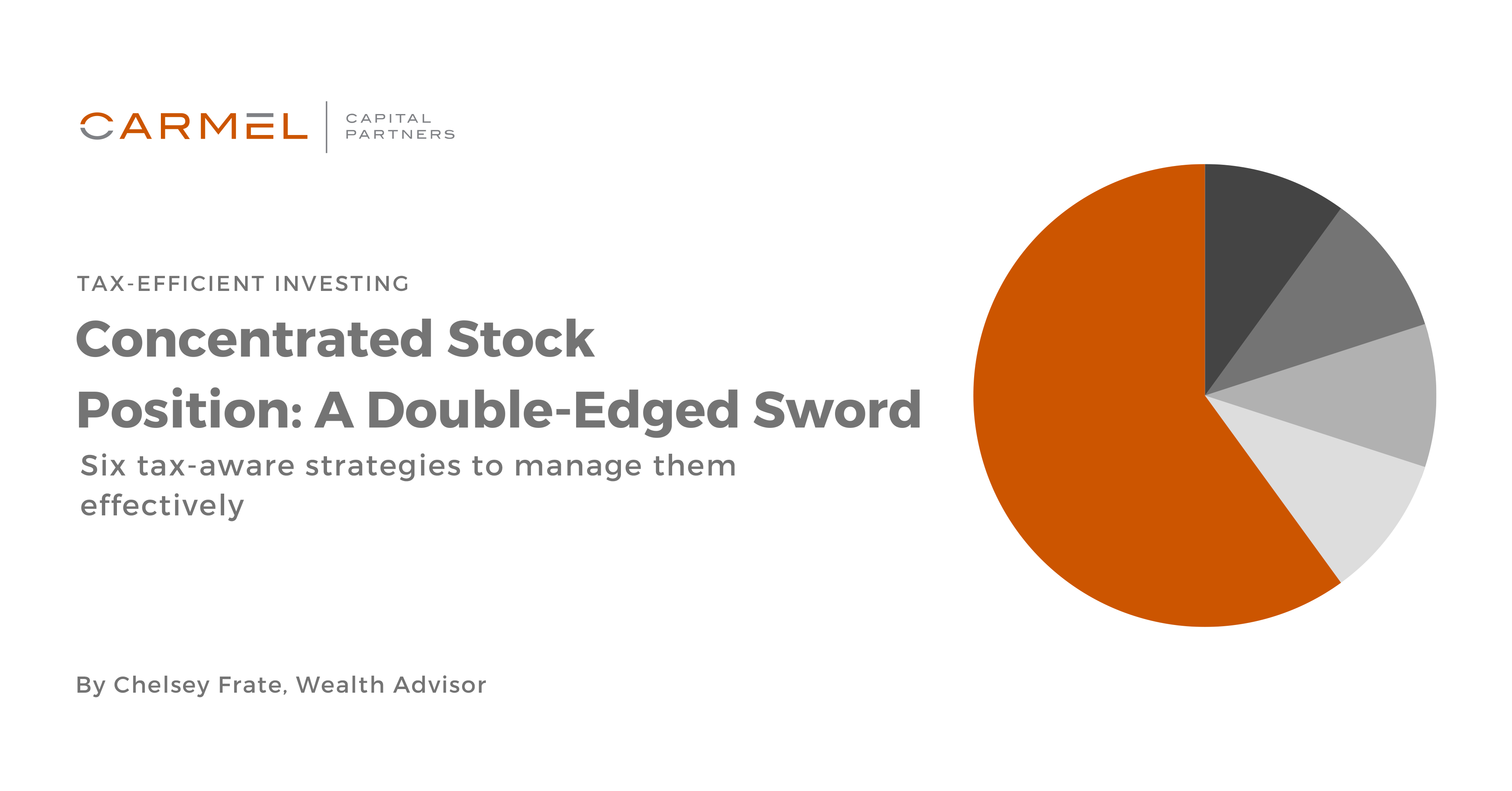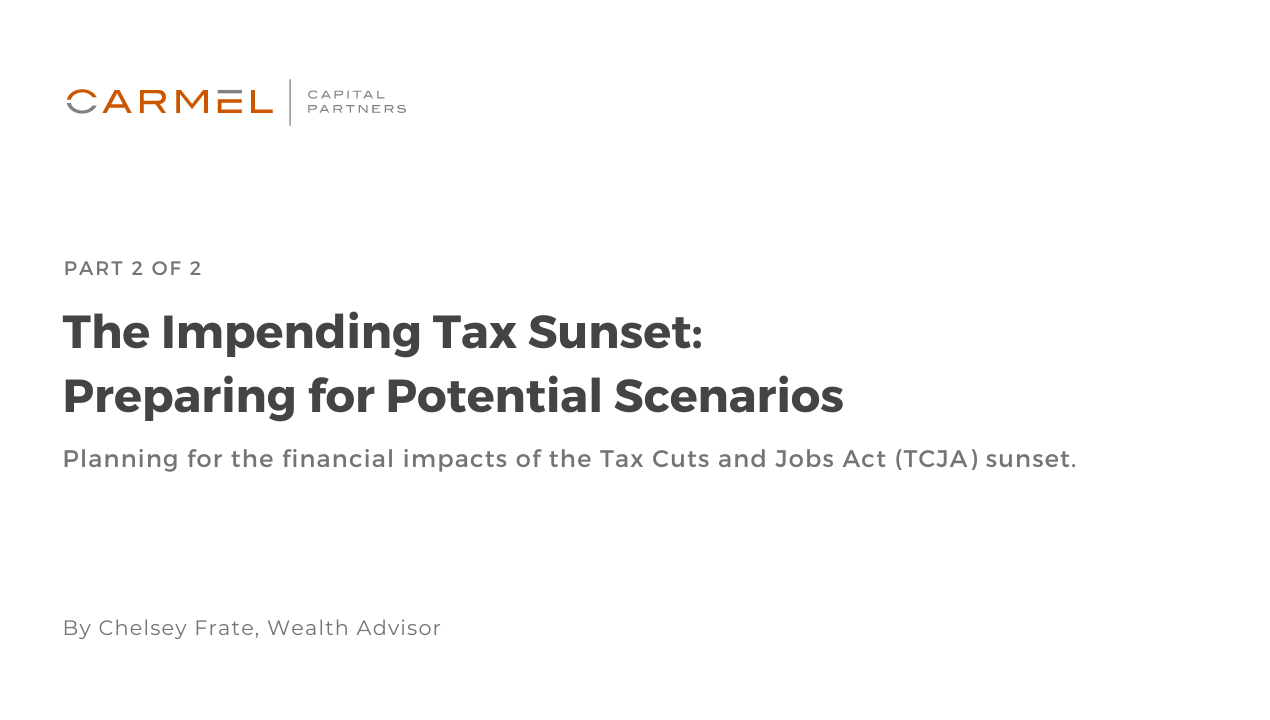Concentrated Stock Position: A Double-Edged Sword
In an investment landscape where prudence dictates diversification, having a concentrated stock position can appear as a double-edged sword. On one...
2 min read
 Chelsey Frate
:
July 10, 2024 2:00 PM
Chelsey Frate
:
July 10, 2024 2:00 PM
Tax loss harvesting is a powerful strategy that, while commonly associated with annual tax planning, can also play a crucial role in long-term estate planning for California residents. It involves strategically selling investments at a loss to offset capital gains taxes, thereby preserving more wealth for future generations.
At its core, TLH is about turning investment losses into tax savings. By selling investments that have decreased in value, you can realize the losses for tax purposes. These losses can then be used to offset realized capital gains from other assets. If your total losses exceed your gains, you can use up to $3,000 a year to offset ordinary income, with the ability to carry forward unused losses indefinitely.1
Incorporating TLH into an estate plan requires a proactive approach to portfolio management. It's not just about reacting to market downturns; it's about regularly reviewing your investment portfolio with an eye toward the current tax year and future implications for your estate. This approach ensures that your estate plan is not only tax-efficient today but also positioned to benefit your heirs in the future.
For example, a family with a large portfolio of tech stocks has experienced significant volatility, leading to unrealized losses in several positions. By implementing a tax loss harvesting strategy, they would sell those positions, realizing the losses. These losses offset gains in other areas of their portfolio, reducing their overall capital gains tax liability. Additionally, the strategy helps rebalance their portfolio towards a more diversified asset allocation, aligning with their long-term estate planning goals.2
For California residents, where state taxes can add to the tax burden, tax loss harvesting offers a way to maximize estate value by minimizing the impact of taxes on investment returns. This strategy is not just about short-term tax planning; it's a crucial component of preserving wealth across generations, ensuring that your heirs receive the full benefit of your life's work.
In conclusion, tax loss harvesting is an often-underutilized strategy in estate planning. By incorporating this technique into your broader estate planning efforts, you can help ensure that your estate is protected from excessive taxation and primed for growth.
This approach is especially critical in high-tax jurisdictions like California, where strategic tax planning can result in significant savings and a more robust legacy for your heirs.
Engaging with a wealth advisor who understands the intricacies of investment management and estate planning is essential to implementing tax loss harvesting within your estate plan effectively.
1 IRS.gov, March 8, 2024.
2This hypothetical scenario is for illustrative purposes only. Actual performance and results will vary. This example does not constitute a recommendation as to the suitability of any investment for any person or persons having circumstances similar to those portrayed, and a financial advisor should be consulted. This example does not represent actual clients. Any resemblance to actual people or situations is purely coincidental.
The content is developed from sources believed to be providing accurate information. The information in this material is not intended as tax or legal advice. Please consult legal or tax professionals for specific information regarding your individual situation. The opinions expressed and material provided are for general information and should not be considered a solicitation for the purchase or sale of any security. Investment advisory services are offered through Carmel Capital Partners, an SEC Registered Investment Advisor.

In an investment landscape where prudence dictates diversification, having a concentrated stock position can appear as a double-edged sword. On one...

Estate and tax planning are crucial items to complete as part of a family's financial plan. It is a topic that crosses everyone's mind but gets...

In Part 1 of this series, we reviewed the key provisions of the 2017 Tax Cuts and Jobs Act (TCJA) and examined their potential impact on American...